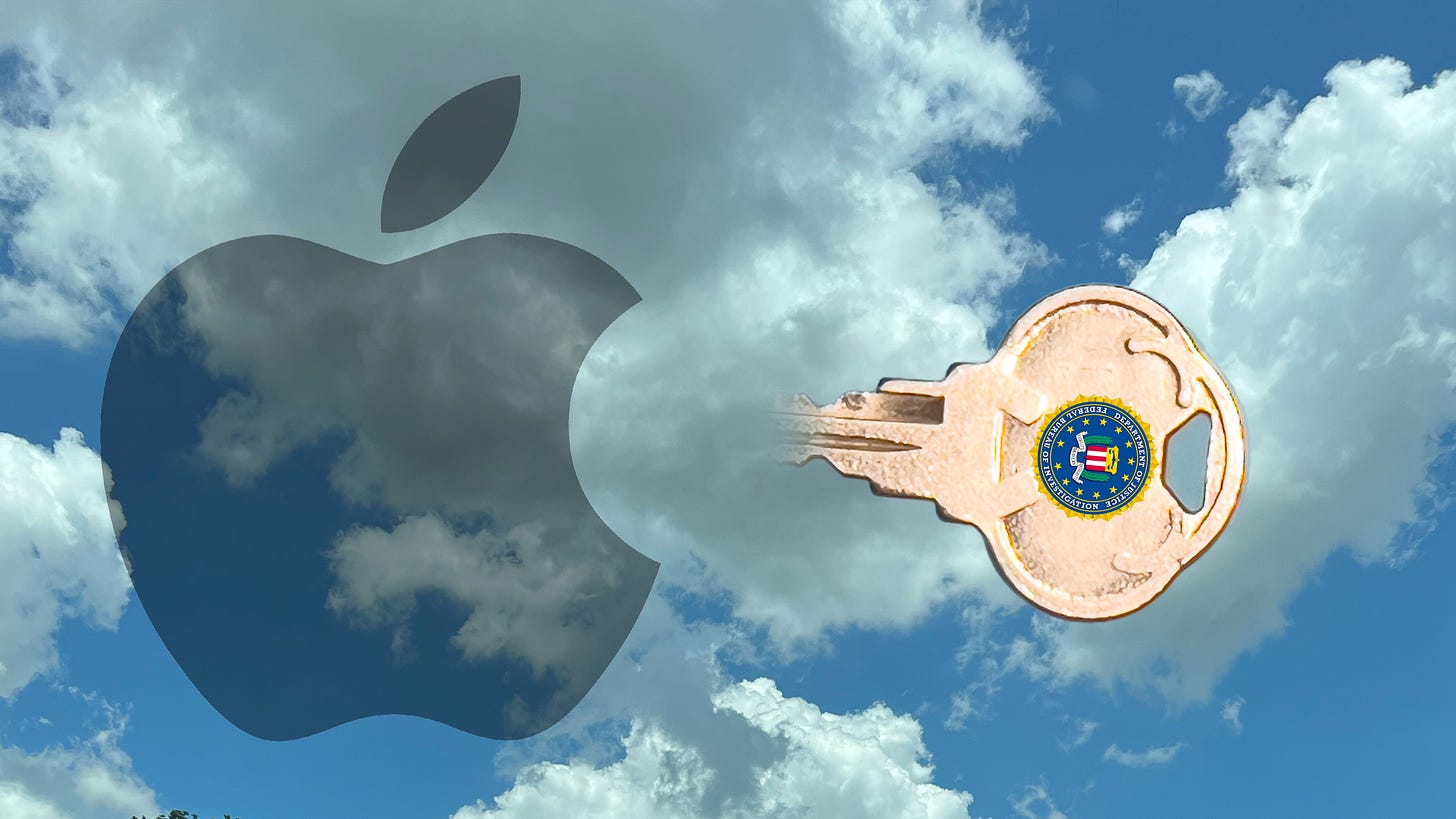FBI reacts to Apple’s end-to-end encryption feature that advocates laud
Backdoors for governments are ‘just broken encryption,’ says the EFF
➡️ The Shortcut Skinny: Think of the g-men!
🕵️ FBI complains it can’t “protect us” without “lawful access” to citizens’ data
❌ Its phrasing echoes ongoing congressional efforts to limit encryption
👏 But the EFF applauds, saying backdoors equates to “broken encryption”
👁️ Apple has also stopped its plan to implement client-side CSAM scans
The FBI isn’t happy about new Apple end-to-end encryption plans, and it’s so fed up that sources within the bureau are giving quotes about it to media outlets
The reaction of the FBI should come as no surprise that Apple’s announcement yesterday of its Advanced Data Protection feature wasn’t great news to the agents within the Federal Bureau of Investigation. It has already been at odds with the company in the past over sensitive data on the phones of those under investigation.
“This hinders our ability to protect the American people from criminal acts ranging from cyber-attacks and violence against children to drug trafficking, organized crime and terrorism,” the FBI told The Washington Post late Wednesday, “In this age of cybersecurity and demands for ‘security by design,’ the FBI and law enforcement partners need ‘lawful access by design.’”
The phrase “lawful access” echoes language used in the Lawful Access to Encrypted Data Act, a United States bill intended to curtail consumer tech manufacturers’ ability to create devices and cloud data services without security back doors for law enforcement, but which ultimately failed without a vote in the Senate.
Just broken encryption
The idea of a secure loophole accessible only to the FBI and similar entities around the world is a pipedream, according to the tech-focused privacy advocate group Electronic Frontier Foundation (EFF), who calls the use of such loopholes “broken encryption.” The group lauded Apple’s plans after it announced the new security features, which its says meets its three-year-running demand that the company do so.
It also commended the company for dropping its plans for client-side scanning for child sexual abuse material (CSAM), an idea pushed as a means to allow end-to-end encryption yet give governments and law enforcement access to user data. Apple’s proposal was for on-device scanning of images stored on Apple devices, triggering wide criticism that the feature could be mis-used by oppressive governments to sniff out opposition.
The EFF called on Apple to make the encryption feature the default, rather than optional, so that nobody needs to seek it out and activate it to see their data protected. I wouldn’t hold my breath until Apple figures out an easy way to help customers who’ve lost their passwords regain access to their accounts.
Apple will debut its new end-to-end encryption feature before year’s end in the United States (it’s live now for iOS beta users), while users around the world will see the feature implemented sometime in 2023.



